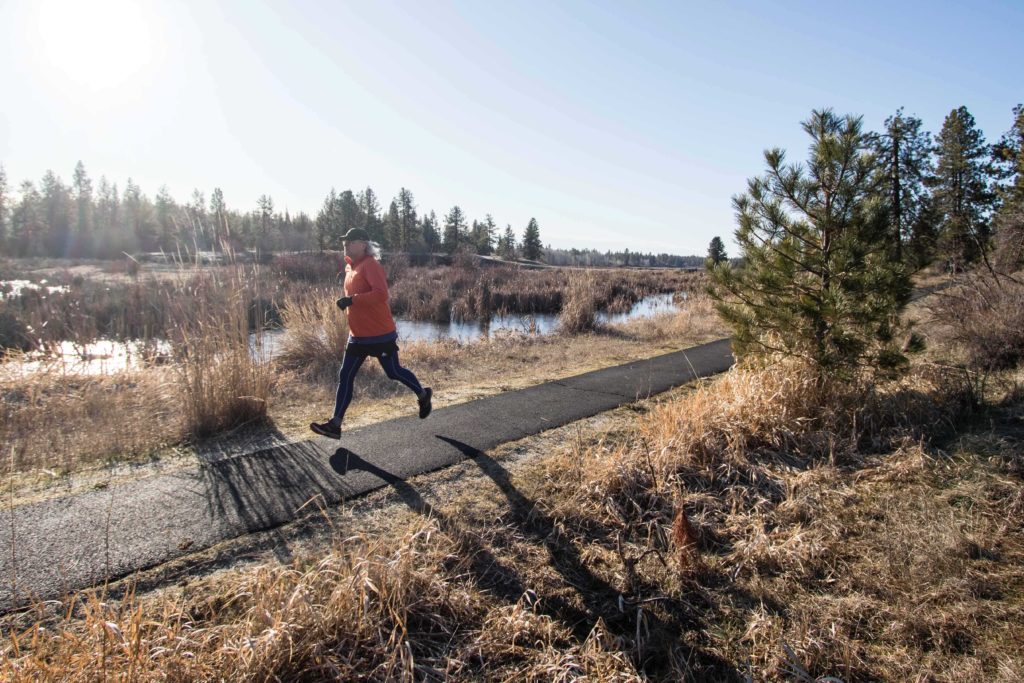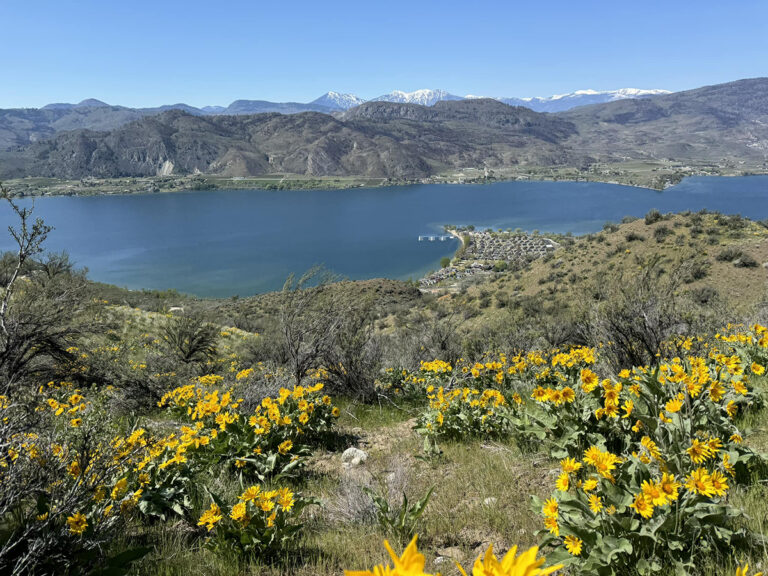By Jonathan Johnson
I have never written about running before because I run not to be but to leave myself. I have written precious little about my Zen Buddhism for the same reason. If the point of both practices is to free myself from the thoughts and feelings that make me me, what is there to say?
Paradoxically, though, I have recently begun to discover that when I return to myself from either practice, I sometimes find a few words in my head, lingering residue from someplace not me. Like dried mud on my running shoes. Like the smell of incense in my black Zen clothes.
The desire to leave oneself seems to be pretty common among poets across cultures and epochs. As does the role of wildlife in that pursuit. One April night 201 years ago, the English poet John Keats followed a nightingale’s song through the dark. He returned with the words “Fade far away, dissolve, and quite forget, / What thou among the leaves hast never known, / The weariness, the fever, and the fret.” 1,100 years ago an anonymous Japanese poet followed a nightingale’s song and returned with the words “you too have passed through this world” and “forgetting even who you are.”
The Zen temple where I have practiced for 20 years and the Zen priest whom I have known since I was 4 are far away. I have them only a few months a year. Fortunately, I live the rest of the year a mile from the edge of 18,000 acres of the pine forest, wetlands, and little lakes of Turnbull National Wildlife Refuge in western Spokane County.

Every year I run at least one marathon or ultramarathon, and the dirt roads and trails of Turnbull are where I do most of my training, usually three or four times a week. Forgetting myself comes easier in country free of the distractions of traffic and curbs and human noise. On my 40th birthday, I ran 40 miles, much of it in Turnbull. On my 50th I switched to kilometers and again ran my age, all of that in the refuge. As with Zen, the great majority of my Turnbull running time my mind swirls with clouds of thought and feeling. But for passing moments that mental weather of selfhood clears. I fade, dissolve, forgetting even who I am. Which came in particularly handy on those big mortal-awareness-inducing birthdays.
The other beings I encounter in Turnbull are rarely human. No nightingales either. But I’ve had the company of ducks and songbirds, snow-diving foxes, coyotes, and many moose, including a bull, the dark, enormous side of which I nearly smacked into as I ran head-down, exhausted in the dusk. Once I found—or perhaps more accurately, lost—myself in the middle of a moving heard of elk that parted around me, indifferent as a river, as I stopped running and stood still, like a river stone.
And geese.
“We have a soul at times,” writes the Polish poet Wisława Szymborska. “No one’s got it non-stop, / for keeps.” Whatever my elusive soul might be, I feel it close when I return from the self-erasure of Zen or running. Especially when the residue of words that returns with me is mingled with the voices of passing geese. In an intimate, wooded stretch just past Turnbull’s West Blackhorse Lake, I heard them before I saw them. Then:
flying over the pair of geese are briefly embodied / low autumn sun silvers / with every downstroke /the underside of one’s wing / as they trade oie for oie
Something not Jonathan Johnson, whatever that is, answered:
I who cannot call myself / a believer call up to them / loud enough that they / might hear Good Morning! / softer Godspeed as they pass / back into the / everything unseen beyond the pines
When you emerge from zazen—sitting meditation—the first words you chant—in chorus with the priest and other practitioners—are “Great robe of liberation. Virtuous field far beyond form and emptiness.”
The words I find on my Turnbull runs are, literally, my own. Of course they are. But they feel more like those ancient words of the Zen chant, residue from a grace somewhere far beyond me.
Jonathan Johnson is the author of five books, most recently the memoir “The Desk on the Sea” (2019) and the poetry collection “May Is an Island” (2018). A former wilderness guide, he is now a professor in the Creative Writing Program at Eastern Washington University.
Where to Go: Hiking & Running Trails in Turnbull National Wildlife Refuge
Further Reading: Raising a Kid as an Outdoor Family – a Q&A interview with Jonathan Johnson and his wife, Amy Howko.












